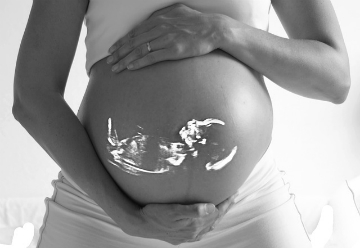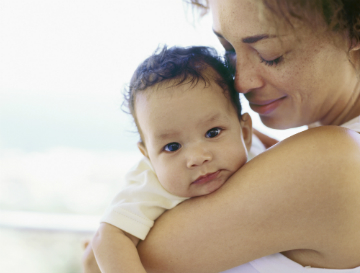Prevention of mother to child transmission of HIV
(Western Cape Government)
Mother-to-child transmission of HIV is the most common way young children contract the virus and happens when HIV is passed from a mother to her unborn baby during pregnancy, birth or breastfeeding.
An effective Prevention of Mother to Child Transmissions (PMTCT) programme requires mothers and their babies to:
- Receive antenatal services and HIV testing during pregnancy
- Have access to antiretroviral treatment (ART)
- Practice safe childbirth practices and appropriate infant feeding
- Make use of infant HIV testing and other post-natal healthcare services
South Africa's PMTCT guidelines divide the national PMTCT programme into three phases:
Antenatal care during pregnancy
When a mother goes to the clinic, midwife obstetric unit (MOU) or hospital for her first antenatal visit, she is offered routine HIV counselling and voluntary testing. The results are confidential, which means that only the counsellor and healthcare workers looking after the mother will discuss the results.
If the mother takes the test and is found to be HIV positive, she will have the option to join the PMTCT programme for free.
All HIV positive pregnant or breastfeeding women qualify for ARTs. ARTs will reduce the risk of HIV transmission to the baby and protect the mother's health during and after pregnancy. ARTs should be taken as soon as possible after diagnosis (within 7 days). 
Labour and delivery
Women on ARTs continue to take their medication throughout pregnancy and labour, and are able to give birth naturally.
Transmission of HIV from a mother to her baby during delivery and labour is increased by prolonged bleeding, instruments being used to assist in delivery, episiotomy (surgically cutting the area between the vagina and the anus to prevent tearing) and premature birth.
Postnatal care after labour and delivery
Women on ARTs can continue their treatment as normal.
All babies are given a dose of ARTs daily up until the mother stops breastfeeding. Until the baby’s HIV-status is determined, it is also given an antibiotic treatment to prevent infections.
Feeding your baby
Breastfeeding is encouraged, however mothers are given a choice to either exclusively breastfeed for six months or exclusively formula feed.
Until recently, the World Health Organization (WHO) advised HIV-positive mothers to avoid breastfeeding if they were able to afford, prepare and store formula milk safely. But research has since emerged, particularly from South Africa, which shows that a combination of exclusive breastfeeding and the use of antiretroviral treatment can significantly reduce the risk of transmitting HIV to babies through breastfeeding.
Those mothers choosing to formula feed will be provided with formula milk until the baby is six months old. They will get two tins of formula milk on discharge after delivery and thereafter 10 tins per month at the baby follow-up facility.
 The baby's health and development
The baby's health and development
The mother should arrive with the baby within one to two weeks after birth at the nearest baby follow-up clinic, thereafter every two weeks for the following:
- Monitoring of babies weight
- Immunisation
- A dose of antibiotics
- Checks on feeding practices and if the mother chooses formula feeding, to provide the formula milk to the mother
The baby will receive an HIV test at six weeks.
Next steps
For further information and help, you can contact your nearest clinic. First-time visitors will be asked to fill out a form and a folder will be opened for the patient, so remember to take your ID book. You will need a referral letter from the clinic when you visit a hospital.
The following organisations may also be able to assist you:
Western Cape Regional Training Centre (formerly known as ATICC):
Tel: 021 763 5320/1/2/3
Fax: 021 797 3356
Treatment Action Campaign (TAC) Western Cape
Tel: 021 364 5489
Fax: 021 422 1720
Tel: 011 356 4100
Fax: 011 339 4311
Email: info@section27.org.za or mlotshwa@section27.org.za
Sonke Gender Justice Network Cape Town Office
Tel: 021 423 7088
Fax: 021 424 5645



